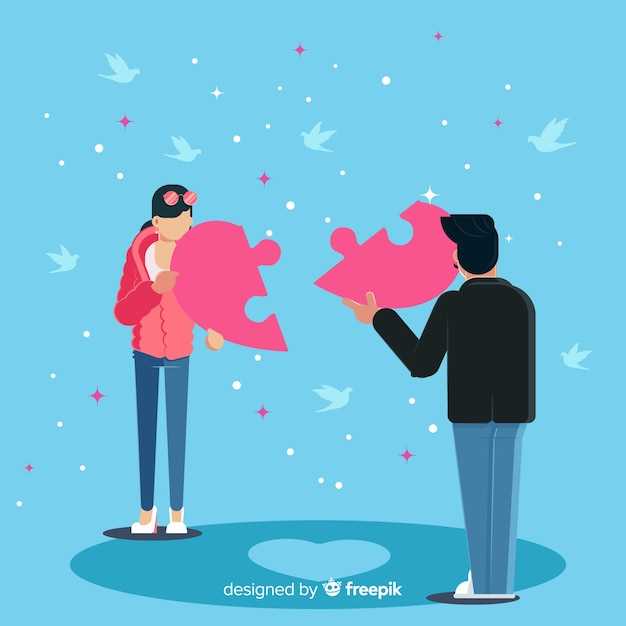I’ll say something that may feel counterintuitive but is painfully accurate: the people who walk away are often the same ones who come back — not once, but repeatedly. If you’re waiting, it can seem insane. But they don’t leave because they don’t care — they leave because they do. That very care terrifies them. They long for closeness, yet closeness requires openness and vulnerability, and for someone who has learned to see vulnerability as dangerous, intimacy can feel like drowning. So they bolt, miss you, and return. Not because they’ve transformed, but because silence eventually feels more unbearable than connection. Let’s unpack this. People with avoidant attachment live with a chronic emotional contradiction: they crave deep love but fear what love demands — honesty, exposure, being truly known. From that tension comes the push–pull pattern. At first, the bond seems electric. They move in. They joke, they let you get close — just enough. But once things begin to feel real, their nervous system flips into alarm. This is too intense. I’m losing myself. They’ll be asked to give more than they can. So they withdraw: fewer replies, canceled plans, chilly behavior, baffling distance. It isn’t that their feelings vanished; it’s that they suddenly feel too much. You get whiplashed — one moment warmth, the next absence. It’s not a calculated tactic or a deliberate game. It’s a reflex, an instinctive defense rooted in emotional wiring formed long ago, often in environments where love had conditions and feelings invited criticism, punishment, or rejection. For them, intimacy equals exposure, so disappearing becomes a way to protect themselves. Here’s the cruel irony: after they push you away, they often begin to miss the very closeness they fled, because the connection was genuine. When their nervous system calms, what once felt suffocating can start to feel safe. Then the pull returns. Now consider what happens when they flinch. When closeness threatens, they rarely explain or request space — they simply retreat, as if fading from view. One moment you’re sharing laughs and closeness; the next they are emotionally shut down, the door closed, and you’re left piecing things together, wondering whether you overstepped or made a mistake. The truth is you walked into their panic zone: for someone avoidant, the nearer they get to another person, the more exposed they feel. It’s not rational — it’s biological. Intimacy activates their alarm system like a threat. So their withdrawal is automatic: their body moves before their mind can make sense of it. In that retreat they find temporary relief. Space lets them breathe again. But relief is fleeting. As panic ebbs, emptiness arrives. They start missing the voice they fled from, the fact you didn’t demand perfection, the quiet safety you offered without naming it. Yet admitting that would require vulnerability, which still feels dangerous. So the cycle repeats: push, pull, retreat, return. It’s not that they don’t care — they weren’t taught how to stay. Another aspect to understand: after a period of warmth and emotional closeness, they can suddenly vanish without warning — fewer texts, canceled dates, “I’m just busy” — but what’s really happening is retreat. Not because their feelings ended, but because they became overwhelming. For an avoidant, intimacy isn’t soothing; it’s overwhelming, suffocating, an erosion of control. Their response isn’t to explain but to shut down emotionally and create distance, because distance feels like survival. This retreat is not punitive but reflexive, wired into fight–flight–freeze responses: flee from closeness. Meanwhile, while you agonize over every word, they often feel an initial relief in the silence — no demands, no vulnerability, no pressure. Yet that silence soon sharpens: distance begins to ache, and the person they pushed away becomes the very thing that feels safe again. Not because anything changed in you, but because the intensity cooled enough to feel manageable. Avoidant people don’t know how to sit with the moment, so they escape it; when it becomes tolerable again, they come back. It’s survival, not logic. Silence isn’t mere absence for them — it’s a shield. If closeness registers as danger, emotional space becomes oxygen. When intensity spikes, their nervous system cries, “Retreat,” and they slip into the refuge of distance. Initially, this feels freeing: freedom from expectations, from the risk of being hurt. A reset. They need to feel safe again. But silence rarely remains peaceful. The longer they sit with it, the louder the quiet becomes. Relief turns to emptiness, because although avoidant people flee connection, they also crave it like anyone. In the hush, they remember your laugh, your steadiness, the moments they felt seen without being judged. Absence magnifies memory. If you respect the space they take and don’t chase them, the vacuum often accelerates that remembering: your presence becomes comforting again in their mind. But beware: their return doesn’t necessarily signal insight or growth — it often means they miss the safety they felt with you even if they weren’t ready for it before. People commonly misunderstand this: when an avoidant pulls away, they don’t erase the bond; they repress it. Repression is not deletion, only delay. Eventually the buried feelings surface in the quiet — relief gives way to boredom, restlessness, then a flood of memories selective for the good parts, not the conflicts or overwhelm. Their nervous system numbs the threat and magnifies the warmth over time. They recall your smile, the calm in your voice, how you accepted them without demanding perfection. These recollections hit unexpectedly — mid-day, mid-conversation, in moments when they convinced themselves they were fine — and they experience a sudden pull, a craving for you because you felt like the safe place they never learned to inhabit. If you’ve stayed silent, letting them have the space they needed, you can become even more vivid in their thoughts. That’s the irony: the more you let go, the more distinctly they remember. Then, perhaps out of the blue, you get a brief message: “Hey, thinking of you,” or “Hope you’re okay.” No apology, no unpacking — the door creaks open and your heart races because you waited and hoped and checked. But pause before you respond and don’t rewrite the narrative in your head: that text is not always a turning point. Often it’s an upwelling of unprocessed emotion, not a sign of true change. Avoidant people rarely grieve in real time; they suppress, defer, and rationalize. But what they bury resurfaces as restlessness, loneliness, or a sudden yearning that shows up as a single text. They’re not necessarily manipulating you; they may not fully understand why they reached out. All they know is silence stopped working, and you once felt like home. What matters after that message isn’t why they sent it, it’s what you do next. Are you reading a message or re-entering a familiar loop? Because replying often means stepping back into a pattern you should be sure you want to repeat. Let’s clarify something important: lack of outward emotion doesn’t equal lack of feeling. Avoidant people aren’t unfeeling; they’re overwhelmed. There is a vast difference between emotional absence and emotional repression. Avoidance is built on the latter: they contain feelings tightly, pretending everything is fine while clenching through internal pain. They compartmentalize, distract, and numb with work, hobbies, or new relationships — not because they don’t care, but because caring feels unsafe. Many grew up where emotions were dismissed or punished, where crying was weakness and asking for love was labeled neediness. So they adapted by erecting walls instead of bridges, learning to look okay while quietly falling apart. After a breakup this pattern persists: while you grieve and heal, they appear to move on quickly — back at the gym, dating, posting smiles online. Don’t mistake motion for resolution. Avoidants delay sorrow; their pain often shows up later, alone and quietly. When they return, it’s usually not because they suddenly had an epiphany but because the avoided weight came due. They feel their emotions later than you do. Walls aren’t built to shut love out by choice, but because they don’t trust love to last. They convince themselves independence equals strength: “If I need no one, I can’t be disappointed.” But hyperindependence can be a fortress of fear rather than genuine power. Blocking connection doesn’t eliminate pain — it exchanges it for loneliness, slow and heavy. The wall that was meant to protect eventually becomes a prison. No amount of busyness, achievement, or even a new partner can completely silence the echo of the one person who saw them without demanding performance. In the space behind that wall, memories of you linger — not for what you did wrong, but for what they couldn’t receive. Love requires openness, and their defenses keep out both harm and healing. So eventually the illusion collapses: independence can’t fill the void left by connection. When their barrier cracks, what leaks out first is not swagger but regret. Grief for avoidant people often arrives late. While most grieve in real time — crying, talking, processing — avoidants skip that work initially. They dive into activity, avoid introspection, and delay feeling. They’re not heartless; they are simply postponed. That postponement comes at a price. When the grief catches up, it hits deeply: a quiet sorrow that arrives in an unexpected moment — during a run, during a song, scrolling through old photos. It becomes a weight they can’t outrun. By then, you may have already done the emotional labor, healed, maybe even moved on. Now they’ve returned, not because they’re ready, but because the pain they denied finally surfaced. It’s not clarity; it’s catch-up. Don’t conflate late arrival with readiness. They’re feeling what they refused to feel while you were still holding space. They’re trying to re-open a chapter you closed. Avoidant behavior doesn’t end grief — it suspends it. When the pause ends, it often rewinds to you, and that’s when they come back, driven by emotional gravity they can’t evade. For most people intimacy equals safety and home; for an avoidant, intimacy feels like losing oneself. It’s not love itself they fear, but the demands love makes: to be seen, to be known, to lower the guard. Vulnerability is their greatest threat — surrendering control, handing someone the map to their most fragile parts they’ve hidden behind logic, silence, and self-reliance. So when you get close, something in them panics. It shows in flinches at emotional questions, pulling away after a good night, deflecting compliments, changing the subject, or disappearing after saying they care. To them, opening up is exposure, exposure feels like losing self, and losing self feels suffocating under another’s expectations. They don’t run out of spite; they run because your closeness touches places they have never let light into. Even if you are gentle, patient, and consistent, your steadiness can feel like pressure because they aren’t used to being held. They’re used to holding themselves together. So when real love arrives — steady and present — it can feel less like peace and more like being cast into deep emotional water without a lifeline. Their reflex is to push away, not because they don’t feel, but because they suddenly feel everything. Yet even the most guarded avoidant eventually reaches a point where the silence they once sought starts to echo with an unexpected sound. You can only outrun connection for so long. You can bury yourself in routines, distractions, even new relationships, but loneliness follows. Initially they tell themselves they’re simply busy or focused, but late at night, when the noise fades, the mask of independence cracks and emptiness appears. Not necessarily a desire to get you back, but a yearning for the person they were when you made them feel whole. You reminded them they were lovable. Even guarded, you saw them as a person, not a performance. Now, removed from that reflection, they wonder why they keep losing what they claim to want. The paradox is stark: the more they guard their autonomy, the lonelier they become. Independence without intimacy is not strength but self-abandonment. The walls that were once protection turn into barriers that keep connection out. Their reflection is not due to sudden healing but because solitude has finally allowed them to hear what their silence had been saying all along: they pushed away what felt like peace. A hard truth many miss: when avoidants return, it’s not always to love you again. Often they return because they miss being loved by you. That distinction matters. True love is mutual — two people meeting in vulnerability, truth, and presence. What draws an avoidant back is frequently the comfort you offered, the mirror you held up, the acceptance you gave without demanding anything in return. In that space they felt safe — perhaps for the first time — and instead of staying, they panicked and fled. Later they realize they miss how you left the door open. Their reach back is often shallow: “Thinking of you.” Beneath that surface message may be an unspoken ask: “Can you remind me who I was when you loved me?” That’s a trap. If you mistake their yearning to feel loved for a readiness to love in return, you may reopen a door only to find they’re still afraid to come through. This isn’t a call for bitterness; it’s a call for discernment. Ask yourself: are they seeking connection, or are they seeking comfort? Longing is not the same as readiness, and being missed is not the same as being chosen.

They’ve come back into your life. A message, a knock, a crack in the door — and every part of you rushes to hope. This could be the moment everything changes. But before you rush forward, take a beat. Not as punishment or manipulation, but to safeguard the calm you’ve worked for. Your value isn’t shown by how fast you reopen yourself; it’s revealed by the clarity of one simple question: what has changed? What is actually different this time? Look for tangible shifts — in how they act, how accountable they are, and in how you now insist on being treated. Consider what you require, what you will no longer accept, and where you refuse to make yourself smaller. Old patterns of avoidance are seductive: the chemistry, the shared history, the familiarity that makes it easy to slip back into the same dance. But connection without growth is nothing more than repetition, and you weren’t put here to repeat your own heartbreak. Ask whether they’re steady now, emotionally available, willing to own the silence, the retreat, the confusion they left behind. If their return is only about comfort for them and not clarity for both of you, you’ll be back at the beginning, doubting yourself once more. This is an opportunity to claim your power — to decide differently and raise your standards. Them coming back doesn’t define you; your reaction does. Breathe, ask the question, and listen not just to the words but to the honesty underneath them, because your peace is the thing you must protect. Don’t trade it for a recycled promise. Make a firm decision: healing isn’t idly awaiting their change or keeping the door ajar in case they finally learn. Healing is movement toward you. It’s stepping out of their orbit instead of circling their emotional capacity while they were silent and you were searching. While they avoided, you began to wake up. And here’s an important truth most people don’t say aloud: you don’t need their apology to continue your life. You don’t require closure from someone who couldn’t provide consistency. You don’t need their return to confirm that what you felt mattered — you already know it did; that’s why it hurt. Healing isn’t passive waiting for transformation in another; it’s shifting how you show up for yourself. Stop pleading for crumbs and start expecting a table set with what you deserve. You gave time, patience, softness, and space — now give yourself that same compassion. Real healing is active, unglamorous, and often quiet: choosing not to reply even when your fingers tremble, holding the ache while remaining rooted in truth. Patterns don’t end by staying put — they end when you keep moving even when it hurts the most. Healing doesn’t ask you to remain on call for them; it asks you to get ready for your own life. The real change happens not when they return but when you stop accepting what used to seem normal. That shift from tolerating to telling the truth is pivotal. What you once labeled love was sometimes survival — tolerating silence, confusion, emotional leftovers and calling them enough because you were desperate to feel something genuine. Now you can tell the difference between being chosen and being leaned on for comfort, between someone missing you and someone consistently showing up. Maybe love remains; maybe part of you will always feel for them. But love without clarity becomes self-abandonment, not loyalty. So boundaries are drawn, not from bitterness but from respect for yourself, because worthiness doesn’t require proving — it already exists. If someone treats your love like a revolving door, they’re not ready for what your heart needs. This is where you stop dancing to an old rhythm and begin standing in calm: abandoning “maybe this time” for “is this truly what I deserve?” Avoidance may recur, but you are no longer waiting at the threshold hoping for a different person. You’ve moved into your own truth, and if they cannot meet you there, you will not shrink to make room. Let them circle and spin — you’ve stepped off that ride. They can reach out, call, ask after you; they can sit with the weight of what they couldn’t carry before. But their return does not obligate you to reopen the door. This is not vengeance; it’s release. Coming back is not proof of love — often it’s the echo of their own loneliness finally louder than their fear. They may genuinely care, perhaps always did, but care without capacity breeds chaos, and you were never meant to be the half-finished place where someone almost arrives. So let them come back, yes — but let them find you whole: not waiting, not aching, not shrinking so it’s easier for them to stay. Let them witness that you’ve outgrown the pattern: your silence is not a snare but a sanctuary; your stillness is not surrender but strength; your boundaries are not walls but locked doors that open only for love that is ready, steady, and real. You don’t have to fight for a spot in a life where you weren’t fought for. You don’t have to carry the burden of someone else’s healing at the cost of your own. If they return, meet them with grace and protect your growth, because true love is measured by the ability to remain — to be present and to rise with you — not by how many times someone shows up and leaves. You’ve already done the hardest work. Now let your peace be louder than their pattern and allow them to learn. From the outside of that life you no longer wait for choice. For anyone stuck in the push-pull, remember: your peace outweighs their pattern. Subscribe for more emotional clarity every week.


 Avoidants ALWAYS Come Back… But NEVER For The Reason You Think | Mel Robbins Motivational Speech">
Avoidants ALWAYS Come Back… But NEVER For The Reason You Think | Mel Robbins Motivational Speech">

 Как понять, что травма заставляет вас отстраняться (компиляция из 4 видео)">
Как понять, что травма заставляет вас отстраняться (компиляция из 4 видео)">
 Решите ваши ПРОБЛЕМЫ в отношениях с ОДНИМ ВОПРОСОМ!">
Решите ваши ПРОБЛЕМЫ в отношениях с ОДНИМ ВОПРОСОМ!">
 Как заставить избегающего человека одержиться вами (и уйти первым)">
Как заставить избегающего человека одержиться вами (и уйти первым)">
 Лучшая защита от нарцисса! ЭТО отпугнет нарцисса.">
Лучшая защита от нарцисса! ЭТО отпугнет нарцисса.">
 ">
">
 Как понять, когда нужно РАССТАТЬся с вашими отношениями">
Как понять, когда нужно РАССТАТЬся с вашими отношениями">
 Стили привязанности и боль от завершения токсичных отношений">
Стили привязанности и боль от завершения токсичных отношений">
 Как понять, что пора сказать ему, что ты в него влюблен">
Как понять, что пора сказать ему, что ты в него влюблен">
 Вы подыграли ЛОЖНОЙ версии ЛЮБВИ?">
Вы подыграли ЛОЖНОЙ версии ЛЮБВИ?">